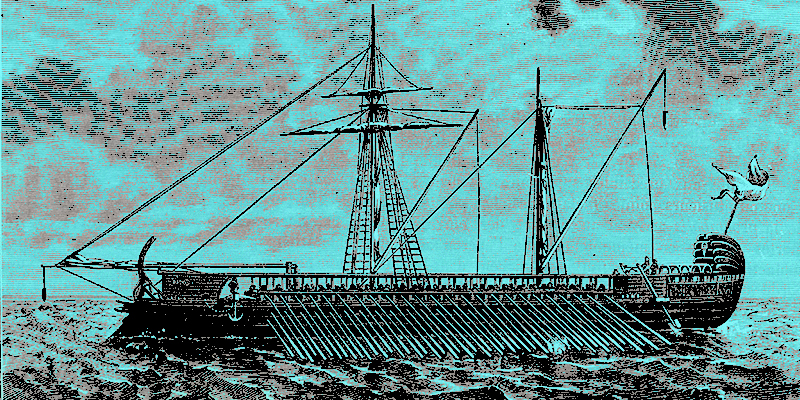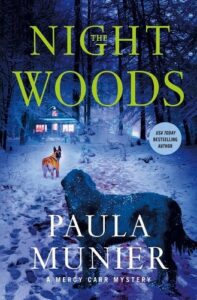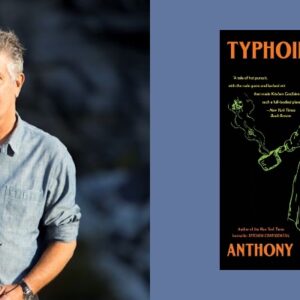Few stories survive for millennia—but The Odyssey, the ancient Greek tale of a winning if embattled warrior’s long and difficult journey home after the war, is one of them. The 12,109-line poem—some 140,000 words—dates from around 750- 650 BCE. Attributed to Homer by most scholars, it’s considered one of the most influential works of literature of all time.
Given that intimidatingly august pedigree, no one was more surprised than I was when I found myself calling upon The Odyssey when writing my new Mercy Carr mystery, The Night Woods.
It happened by what turned out to be serendipitous coincidence. (Or was it coincidence? How much did my subconscious—every writer’s best friend—play a part in this? You be the judge.)
I’d been asked to write a few blurbs summing up ideas for the next few books in the series for a new contract, and I just made something up, as we writers are wont to do. One of the blurbs went something like this:
A very bored, very pregnant Mercy Carr befriends a Scrabble-loving, shotgun-toting hermit named Homer Grant living deep in the woods with his dog Argos. But when she and her loyal Malinois Elvis arrive at the remote cabin for their weekly game, they find a dead man with an axe in his chest—and no Homer….
I named the erudite hermit Homer because Homer is a great name. (I keep a list of great character names and I hadn’t used this one yet). And I gave him a dog named Argos, because dogs play key roles in my books and Argos is Odysseus’s dog, straight out of The Odyssey.
Now What, Homer?
I thought no more about it until about a year later when it was time to write the book—and I realized rather belatedly that by choosing the names Homer and Argos I had set myself up for a story steeped in the themes of The Odyssey. War, peace, homecoming, and the transition to the civilian world that so many warriors find so problematic.
My heroine Mercy Carr is a former MP who fought in Afghanistan, and Elvis is a retired bomb-sniffing dog who served in that same conflict. I’d written about their homecoming and transition to the civilian world before. So I could definitely make that work.
But I hadn’t read the epic poem since that compulsory class on Greek and Roman Lit back in college. I revisited The Odyssey, reading and listening to several of the best translations, including those translated by Robert Fitzgerald, Samuel Butler, and Robert Fagles. For what it’s worth, my favorite is the translation by Emily Wilson; it’s written in very accessible language that nonetheless reads as plainspoken poetry. (Claire Danes beautifully narrates the audiobook. I’m just saying.)
Odysseus, Poster Child for PTSD
I also did a deep dive on The Odyssey, reading around the subject to find that The Odyssey was often given to soldiers leaving the battlefield and arriving home. The story resonated with returning warriors, and could prove a therapeutic tool for such conditions as PTSD. In discussing this with experts, friends, and colleagues (thank you, Sarah Stewart Taylor), I came to the work of Jonathan Shay MD, PhD, a psychiatrist who’d worked extensively with veterans and written a landmark study called ODYSSEUS IN AMERICA: Combat Trauma and the Trials of Homecoming. All of this research—my favorite part of writing a novel—eventually informed The Night Woods.
Odysseus’s very name comes from the Greek verb odussomai, usually translated as “wrathful.” That is, to hate, to feel aggrieved, to be angry with. In The Odyssey, that same verb frequently means to cause pain or hold a grudge. The majority of translators agree that Odysseus means “he who causes pain or angers others.” Or, as translator Emily Wilson describes him, “a complicated man.” Odysseus is also a man of contradictions, who can’t wait to go home but manages to delay it a decade—and when he gets there, it’s a place he barely recognizes. And apart from the dog Argos, they don’t recognize him, either.
Complications, Contradictions, and More
Complications and contradictions are the stuff of crime fiction. The more complicated the characters and the plot, the better. The same is true for contradictions. I embraced both when writing THE NIGHT WOODS—and had great fun developing the characters and building the plot of the story with The Odyssey in mind. (Did I resort to stabbing a character in the eye, à la the Cyclops? Let’s just say I was tempted.)
Write Your Own Odyssey
As worried as I was when I realized that like it or not I was stuck with Homer and Argos of the aforementioned blurb, it was all okay in the end. Just like in The Odyssey. (Well, sort of.) Writing my humble homage to the ancient Greek epic turned out to be one of the most rewarding creative experiences of my life. I am forever grateful to literature’s favorite No Man. I even got the T-shirt.
Part of the fun was noting all the books and films and TV shows also informed by The Odyssey. When you’re writing a book, everything you see and hear and read and watch—even the most random encounter—takes on a sort of inevitable pertinence. Here are some of the ones I enjoyed most:
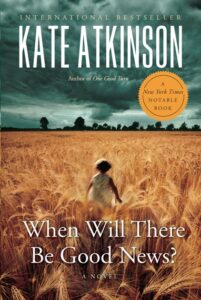
Kate Atkinson, When Will There Be Good News?
I love Kate Atkinson’s Jackson Brodie series, and this entry is one of the very best. And its aspects inspired by The Odyssey are only part of the reason why.
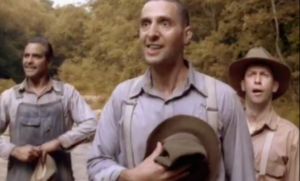
O Brother, Where Art Thou?
This wonderful film is The Odyssey reimagined by the incomparable Coen Brothers. Set in Depression-era Mississippi, the film stars George Clooney as Ulysses Everett McGill (Ulysses being the Roman version of the Greek Odysseus). It’s hilarious and inventive and I can’t help but believe that Homer himself would get a kick out of it.
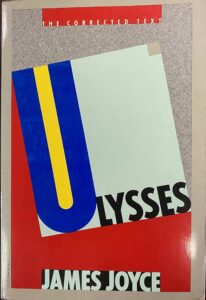
James Joyce, Ulysses
Speaking of Ulysses, writing The Night Woods was an excuse to reread James Joyce’s magnificent retelling of the epic. I hadn’t read his Ulysses since college, and at the time I found it maddeningly obtuse. But reading it all these years later was an altogether different experience, one that I relished so much I started listening to the Friends of Shakespeare and Company’s podcasts of the unabridged text of Ulysses, made in celebration of the book’s 100th anniversary. It’s narrated by more than a hundred writers, artists, comedians, and musicians from all over the world, including Sally Rooney, Margaret Atwood, Stephen Fry, Pete Buttigieg, Kae Tempest, Ali Smith, and Joanna Lumley. In truth, I’m still listening. But what fun.

Tales from the Public Domain
The Simpsons, Season 13, Episode 14
In which the Simpson family reads a long overdue library book, and casts Homer as Odysseus, Lisa as Joan of Arc, and Bart as Hamlet. Enough said.
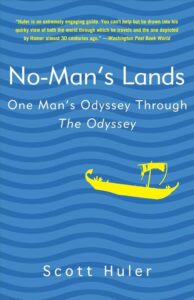
Scott Huler, No Man’s Land: One Man’s Odyssey Through The Odyssey
Scott Huler’s entertaining and surprisingly moving travelogue details the six-month journey in which he retraces Odysseus’s steps from beginning to end, from the ruins of Troy to the hero’s homeland of Ithaca. I loved this book.
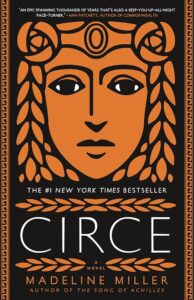
The Penelopiad by Margaret Atwood, Circe by Madeline Miller, Ithaka by Adele Geras
A trio of retellings of The Odyssey retold from the perspective of other people in Odysseus’s life: his long-suffering and resourceful wife Penelope; his lover and captor, sorcerer and minor goddess Circe; and his family waiting back home in Ithaca. All are creative and compelling stories in their own right.
***

